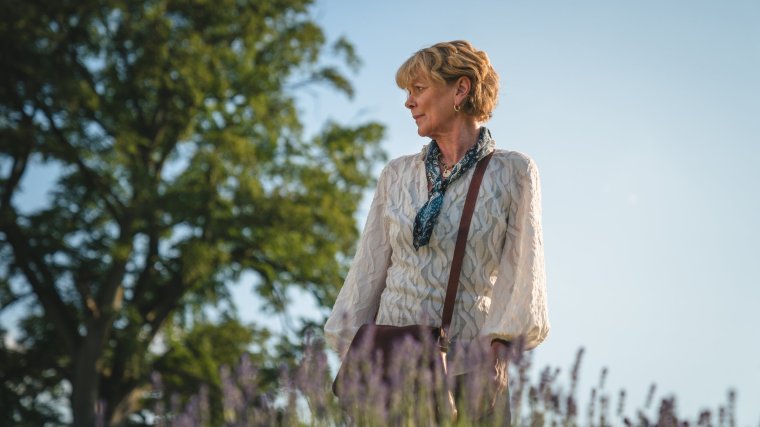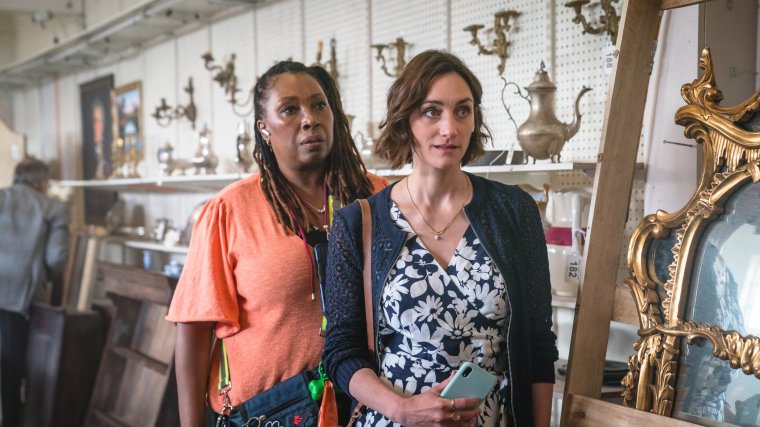When it hit shelves in early 2021, Death in Paradise creator Robert Thorogood’s The Marlow Murder Club was the latest book to be categorised within the overstuffed subgenre of “cosy crime”. Released just months after Richard Osman’s similarly titled The Thursday Murder Club, it wasn’t just the red and black cover lettering the novels shared.
Both centred on small towns in middle England, where a group of “amateur sleuths” came together to solve a dastardly, brutal crime. Both were popular, too – although Osman’s far more so – spawning follow-up novels from their respective authors and prompting the genre to balloon around them.
A film version of Osman’s novel, which has Steven Spielberg attached, is still in the works. Thorogood got in there first with his own TV version, though, and The Marlow Murder Club premiered on Drama tonight. Yet the adaptation was underwhelming; perhaps he should have waited longer.
The two episodes featured an impressive cast of established British acting talent. They tried their best with the uninspiring material, but ultimately felt wasted on this clunky script and its inexplicably long episodes. Death in Paradise fans seeking that sense of sun-soaked escapism would have been left disappointed.

Rather than the vivid, clear seas of the Caribbean, it was the Thames that greeted viewers both to the series, and the picturesque Buckinghamshire town of Marlow. We saw Judith (Downton Abbey’s Samantha Bond), a local resident living in a grand house whose grounds back onto the river, descend into the water for a relaxing swim. Her total lack of clothing told us this was a free woman, unbothered by societal expectations.
Downstream and on dry land, her neighbour Stefan (Rufus Wright) reclined beneath the sun-dappled shade on his own garden bench. But just out of focus, a shadowy figure crossed the camera. The once melodic strings of the soundtrack turned sharp and ominous, warning of what was to become.
In a hammy altercation, during which the camera took on the perspective of the killer, Stefan was murdered. But the gunshot was only heard by Judith and the police found nothing: no weapon, no body.
Living only with a cat for her to conveniently monologue at about her “empirical” and “observational” nature and a large collection of pashminas, Judith was your archetypal nosy older woman. When the police asked her to stay out of things, the impish twinkle in Banks’ eye suggested she was going to do the exact opposite.

It didn’t take long for Judith to locate her first suspect in a cravat-wearing auctioneer, and rope in vicar’s wife Becks Starling (Cara Horgan) to help. With a second murder, they found a third member for their eponymous club: dog walker Suzie Harris (Doctor Who’s Jo Martin). The Marlow Murder Club, while never officially named as such, was complete.
Naturally, the story stretched credulity, but that didn’t matter – nobody comes to a cosy crime drama expecting total believability. But it was the questionable script, adapted by Thorogood himself, that let The Marlow Murder Club down.
The dialogue was stilted and heavily laden with exposition, leaving the actors to struggle to make such implausible conversation seem realistic. The worst of this came during the cheesy, sepia-toned flashback scenes, where the important information was so obviously signposted it felt, at times, like a comedy parody of a murder mystery.
If the conversations, derived of all subtlety, weren’t baffling enough, most confusing was the decision to reduce The Marlow Murder Club to a pair of two-hour long episodes rather than, say, a slower four-parter.
By the time the plot went in an intriguing direction and brought in a potential Nazi link to the murder (although Thorogood’s script felt ill-equipped to handle such a culturally relevant topic), it was too late. I was already fighting off sleep.


